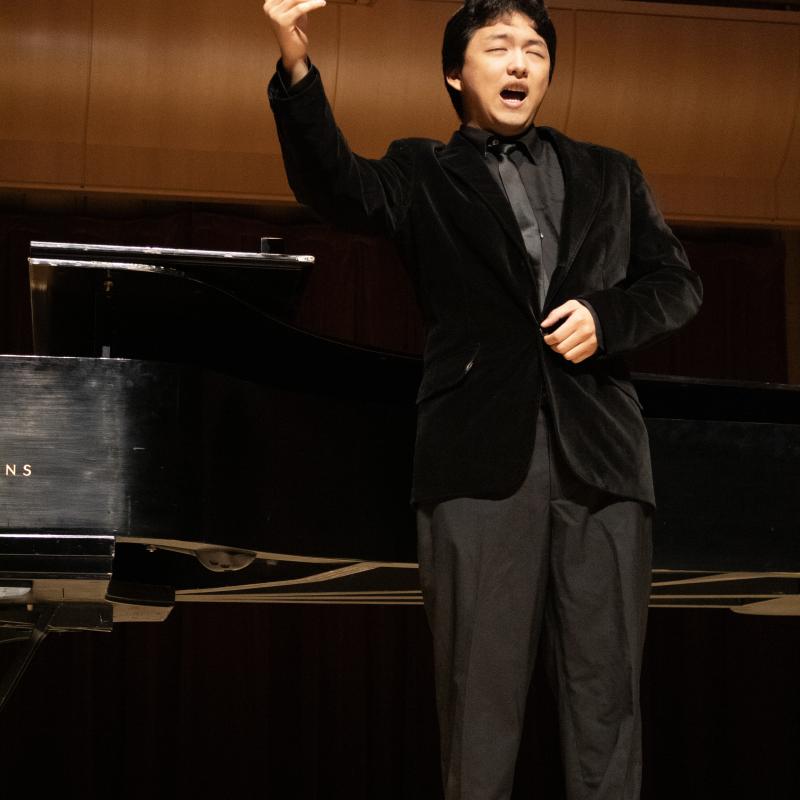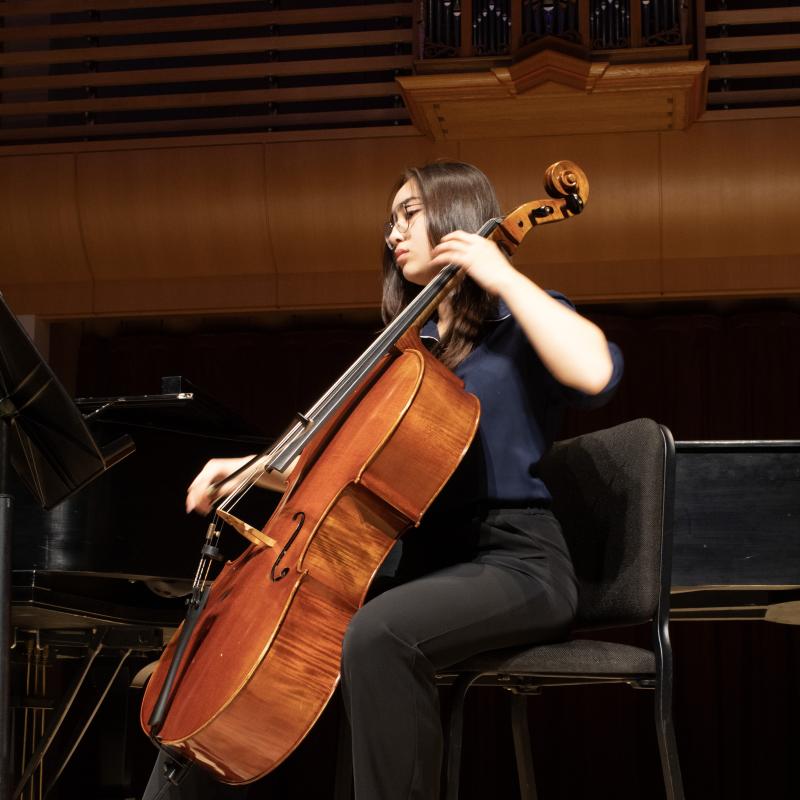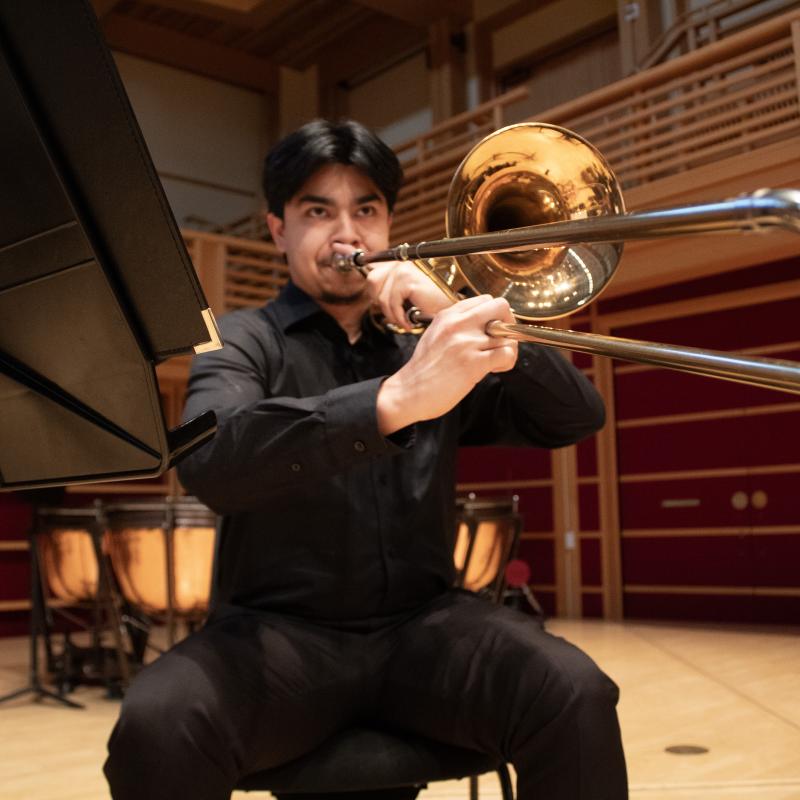Entrance Auditions
All applicants for admission as an undergraduate music major, regardless of whether they want to specialize in performance, composition, music teacher preparation or jazz studies, are required to perform a vocal or instrumental audition in order to be admitted into the program.
We prefer applicants to audition live, on campus, allowing opportunities for you to meet with our faculty and visit the campus. All applicants completing a live on-campus audition are automatically considered for a music scholarship.
Applicants living more than 300 miles from campus can choose to upload a video-recorded audition (via YouTube link) for admission into the program, but may not receive primary consideration for a music scholarship. Additionally, applicants submitting a video-recorded audition may be accepted into the degree program on a provisional basis until a live audition is successfully completed within the first semester of study.
Applicants should bring three copies of their repertoire to give to the audition panel. An accompanist is provided for vocalists. Accompaniment is optional for instrumentalists. A live rhythm section is provided for jazz applicants.
Applicants to the Bachelor of Music Composition degree program must audition on their major instrument/voice and submit 1 or 2 examples of original music in the form of notated scores and/or audio recordings. We prefer to have both, but either format (audio or score) on its own is acceptable. Submissions are due the same week as your audition date.
Click on the Audition Requirements button for more information regarding entrance auditions in each area of specialty.
Sdchedule an Audition




